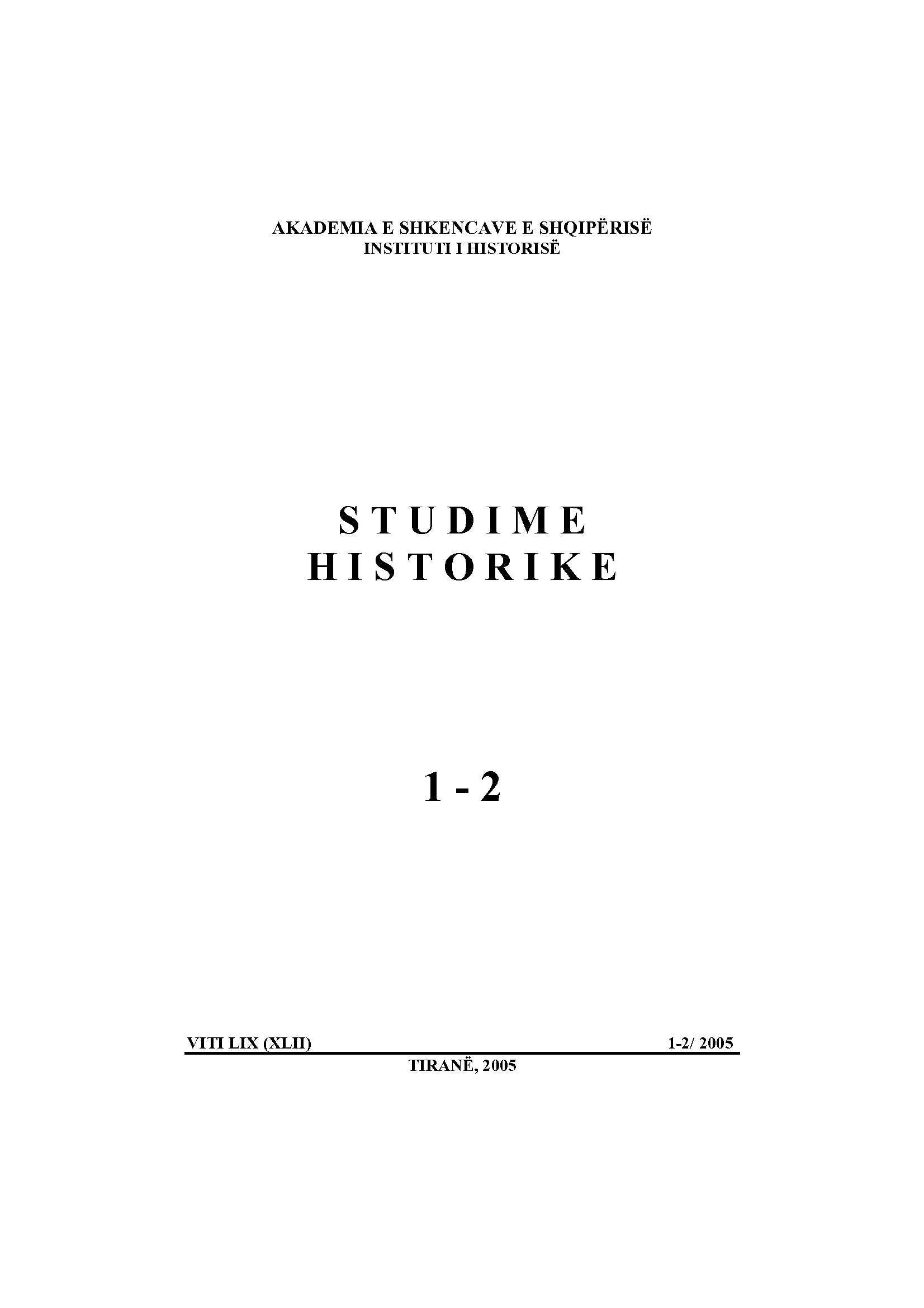Pronësia në Çamëri. Vështrime rreth konflikteve politike e shoqërore midis dy luftërave
Property Relations in Chameria. Aspects of Political and Social Conflits in the Interwar Time
Author(s): Georgia KretsiSubject(s): History
Published by: Qendra e Studimeve Albanologjike
Keywords: politics of human relocation and expropriation; the Cham Muslim Albanians; the religious elite in Chameria; the Mufti authorities;Albania; Albanian History;
Summary/Abstract: Politics of human relocation and expropriation was, in Greece, as in all of interwar Europe, a common pattern. Especially in the case of the Cham Muslim Albanians, property rights were associated – in a complicated and highly politicized manner – with the right of residence in Greece. The competition over Muslim property in Chameria escalated gradually after the settlement in Greece of Christian refugees from Asia Minor and the proclamation of the state-wide land reform in the 1920s. I will first present the legal, ideological and demographic context to then analyse competing social actors at the local level. By doing so I will demonstrate that even if there were homogenising attempts by the state towards the minority, the local responses of the group to enforced policies were multiple and differentiated. I turn first to the representatives of the religious elite in Chameria, the Mufti authorities. There is a lot evidence from Greek records that Muftis where considered as potential “allies” of the Greek state and that they where often recruited to motivate their compatriots, the Chams, to resettle in Turkey. In this chapter I analyse the political positions of the actors in this conflict. I then turn to small landowners and show how various local agents representing both Greek and Albanian interests made competing claims upon Cham land. I elucidate how this competition influenced the decision to relocate small landowners and the poorest strata among the Cham minority. I next address the group of large landowners comprised of Muslim Cham landowners. Although this group has appeared to support the Albanian nationalist movement, with respect to the issue of land, its economic interest in the properties of small, poor Chams seems to override any “ethnic solidarity” they might be expect to share with their “compatriots”. In all of these cases, the role of the ideology and politics of the Greek state will be emphasized. I conclude by arguing that the “legal expropriation” of the Chams by buying their lands and encouraging them to emigrate to Turkey was not only carried out in order to redistribute land to landless Christian refugees, but was also intended to guarantee the national character of those resources. Additionally, I stress that the social dynamic within the minority has to be studied more thoroughly since it also explicates power relations and structures in the area.
Journal: Studime Historike
- Issue Year: 2005
- Issue No: 01-02
- Page Range: 057-071
- Page Count: 15
- Language: Albanian
- Content File-PDF

